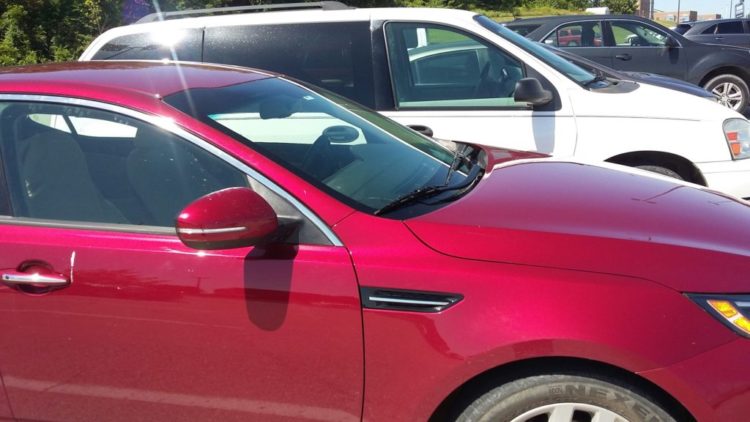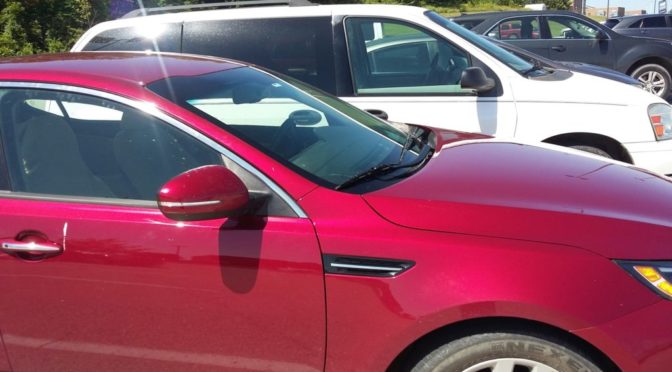
As of July 1 people who see people or animals who have been left locked unattended in parked cars and try to rescue them, will be given protection from lawsuits.
“If someone see’s a child or animal in a locked vehicle, and that person believes that they are in danger, they can break a window to help that animal or child without fear of being liable for the damages or for being prosecuted,” Kansas Senator Richard Hilderbrand told FortScott.Biz.
The law was signed by the governor in April and became effective, Sunday, July 1.
House Bill 2516 provides immunity from civil liability for damage to a motor vehicle for a person who enters the vehicle, by force or otherwise, to remove a vulnerable person or domestic animal if they are in imminent danger.
The following is a press release from the Kansas Department of Health and Environment:
On average, 37 children and over three dozen animals die in a hot car each year in the United States. Hot car-related injuries and deaths are 100 percent predictable and 100 percent preventable.
The Humane Society Legislative Fund (HSLF) of Kansas, KidsAndCars.org and Safe Kids Kansas (sponsored in part by the Kansas Department of Health and Environment) joined together on Monday, June 25, to discuss the new law that goes into Sunday, July 1. It passed during the 2018 Legislative session. The Hot Cars Law gives good Samaritans in Kansas the legal right (under certain conditions) to break a window to help a vulnerable person or animal trapped inside a hot car.
On a 90-degree day, the interior of a parked car can soar to over 115 degrees within 15 minutes. Cracking a window has been proven to not help.
Experts say the most dangerous mistake a parent or animal owner can make is to assume leaving a child or animal alone in a parked car is a safe option, even for just a few minutes.
Already this year, there have been 18 confirmed child deaths in hot cars. A child’s body can overheat three to five times faster than an adult’s, and since animals cannot sweat the way we do, they are unable to regulate their internal body temperature as effectively.
An animal or child can sustain brain damage, organ damage or failure and death from a vehicular heatstroke within minutes of being trapped.
The new law will empower the Kansas community to act fast and safely to help rescue a vulnerable person or animal trapped in a hot car.
Before you can exercise your right to intervene, the following must be checked:
- Is the car locked?
- Is the person or animal suffering in imminent danger?
- Have you notified local law enforcement?
- Are you using reasonable force to break entry?
- Can you remain with the person or animal until law enforcement arrives?
- Is the animal in question domestic? This law does not apply to livestock animals.
Kansas joins 21 other states who protect good Samaritans from legal retribution for assisting people or animals in imminent danger when trapped in a hot car.
For further information, please contact KidsAndCars.org: Amber Rollins, 913-732-2792, [email protected]; or HSLF of Kansas: Miranda Pratt, 417-294-4048, [email protected].
